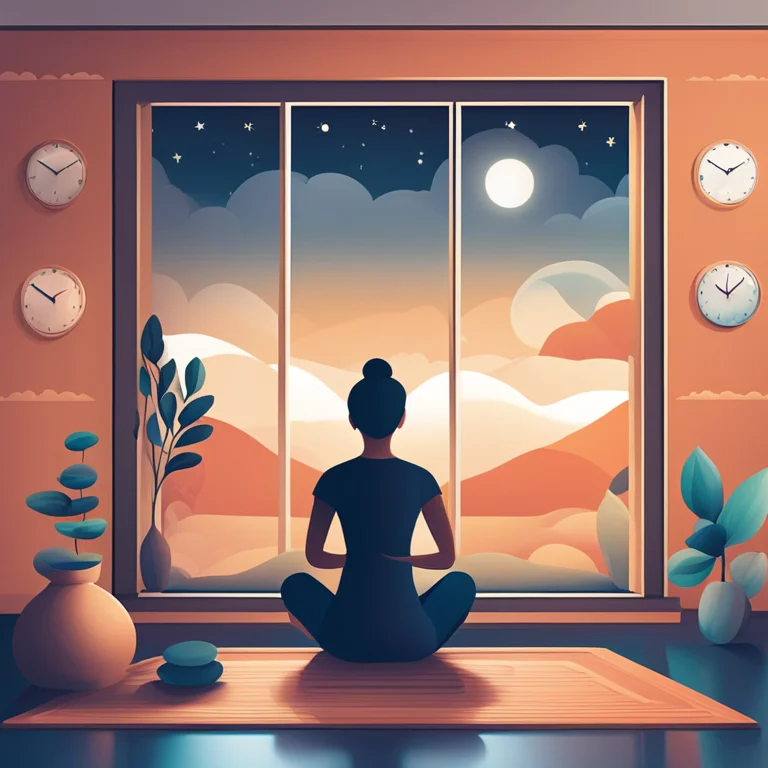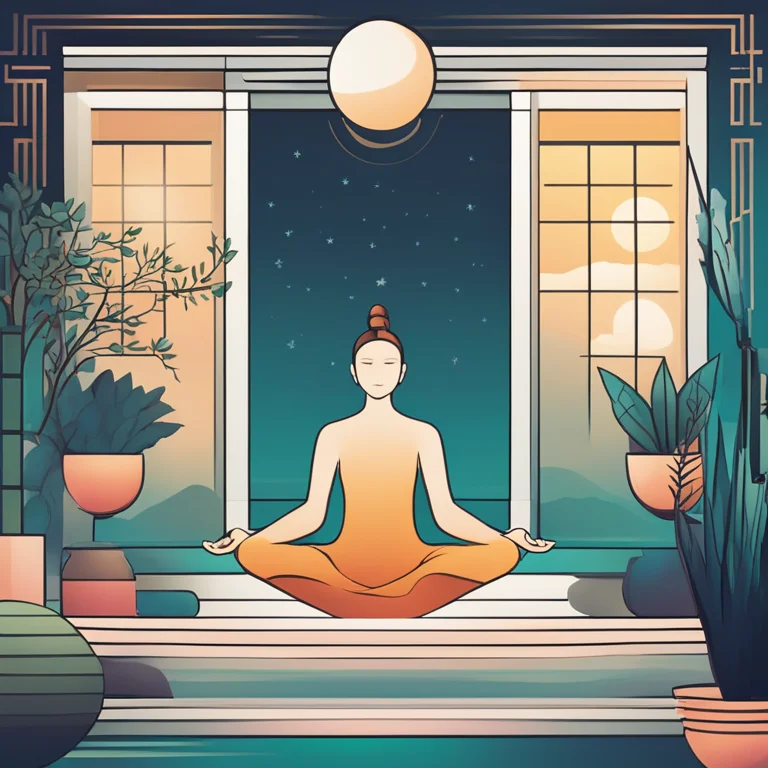
The Harmony of Meditation & Sleep
Discover how meditation enhances sleep quality and overall well-being through mindful practices and relaxation techniques.
article by Hina Kurosawa
Meditation: A Gateway to Restful Sleep
The quest for a peaceful night's sleep is universal, yet elusive for many. Meditation emerges as a powerful ally in this pursuit. A practice rooted in ancient traditions, meditation has gained immense scientific backing for its ability to improve the quality of rest. By calming the mind and reducing stress, meditation sets the stage for sleep, allowing the transition from wakefulness to slumber to be smooth and natural. Moreover, as we continue to navigate the complexities of a hyper-connected world, meditation offers a sanctuary of peace, encouraging a disconnect that fosters deeper sleep.

The Science of Sleep and Meditation
Recent studies underscore the tangible benefits of meditation on sleep. Research carried out in 2024 indicates that mindfulness meditation, in particular, enhances Rapid Eye Movement (REM) sleep, which is crucial for emotional processing and memory consolidation. Additionally, meditation has been shown to increase the production of melatonin, the hormone responsible for regulating sleep-wake cycles. These findings suggest that even a brief daily meditation practice can have a profound impact on sleep architecture, leading to more restorative sleep and improved cognitive function upon waking.

Developing a Meditation Routine for Better Sleep
Embarking on a meditation journey need not be daunting. To reap the sleep benefits, one can begin with as little as five minutes of meditation before bedtime. Consistency is key; thus, integrating meditation into your nightly routine can lead to significant improvements over time. Techniques such as guided imagery, progressive muscle relaxation, or simple breath-focused meditation are accessible starting points that encourage the body's relaxation response, paving the way for a restful night's sleep.

Meditation's Role in Circadian Rhythms
Our circadian rhythms govern the natural cycle of sleep and wakefulness. Disturbances in these rhythms, often caused by stress, irregular schedules, or excessive screen time, disrupt sleep patterns. Meditation helps by promoting regularity and balance in our internal clocks. Engaging in meditation at the same time each day, especially in the evening, can signal to our bodies that it's time to wind down and prepare for sleep, realigning our circadian rhythms with the natural world.

Mindfulness and Sleep Disorders
Meditation offers a non-pharmacological approach to combating sleep disorders such as insomnia. The mindfulness component of meditation teaches practitioners to observe their thoughts without judgment, thereby reducing the anxiety and rumination that often accompany sleeplessness. With the advent of digital mindfulness tools and apps designed for sleep improvement, accessing these methods has become easier in 2024, making it a practical option for those seeking to manage sleep disturbances without medication.
The Future of Meditation in Sleep Health
As we look towards the future, the integration of meditation into sleep health continues to evolve. Advanced technologies, such as biofeedback devices and virtual reality meditation programs, are being developed to enhance the efficiency of meditation practices. These innovations aim to tailor meditation experiences to individual needs, increasing the therapeutic potential for sleep enhancement. With ongoing research and technological progression, meditation is poised to become an even more integral component of holistic sleep health.
Published: 1/9/2024
Modified: 1/9/2024
More predictions
Come back here soon to learn more about yourself and your future


Sharpen Your Focus with Meditation Exercises
Revitalize your concentration through targeted meditation exercises designed to enhance mental clarity and focus.


Morning Meditation for Daily Mindfulness
Start your day with a serene morning meditation routine crafted to foster mindfulness and inner peace.


Exploring Mindfulness Meditation
Discover the art of presence and peace with our step-by-step guide to mindfulness meditation, perfect for beginners and seasoned practitioners alike.